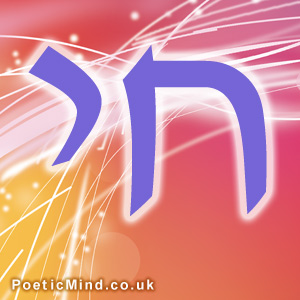
Many times we say blessings, Bracha. We say ‘Baruch Ata HaShem’, ‘Blessed are You, God’, but what does it mean, blessed? What are we blessing?
It doesn’t have any real meaning, because we don’t need to bless God… maybe God needs to bless us…
The Hebrew word ‘Bracha’ comes from a number of different roots. One of them means בריכה ‘Brecha’, a pool of water. Water always seeks out the lowest point. So ‘Bracha’ is the idea of המשכה ‘Hamshaha’ – of drawing down from a high place to a low place, from heaven to earth. So, when we bless and say ‘Baruch Ata’, blessed be You, God – we want to be לימשוך ‘Lamshech’, to draw God down from where He is holy and separate from the world, to become involved in the world.
We need to ask God for a permission to use his creation. When we make a Bracha, a blessings, we ask God for a permission; a permission to plant, to harvest, to cut the crops, to drink water, to breathe the plant’s air. There’s a tract in the Gmara book called the ‘Masehet Brahot’ מסכת ברכות. It is written in one place that ‘HaShem Hu Aretz U-Meleo’, meaning ‘To God is the earth and fullness thereof.’ Everything belongs to God.
In another place in Tehilim we find that it says that the heavens belong to God but the earth he gave to man. So the Gmara asks the question: how can it be that in one place (the Gmara) it says the earth belongs to God and in another place (Tehilim), it belongs to man? So the Gmara answers that one is before you make a Bracha, a blessings, and the other is after you make the Bracha…
If you consume food and you don’t make a Bracha, you don’t bless the food, then you are like a guzzler; you are stealing the holy things of heaven. These things belong to heaven; who says you have the right to just take it? Who gave you permission to eat the fruit from the tree? Did you create the tree? Did you buy the tree? Did you create the earth from which the tree nourishes? God created the earth and the tree and put it there. Yet, when you make the Bracha, then the Bracha is the permission from God to eat from the fruit. The Bracha is the ‘Kinyan’ קניין; you acquire the right to eat the fruit.
Everything that God creates has got godliness in it. This is the creative force that God puts in. It’s the spark which is in everything. There is a mental energy that you have which can permeate this physical world. When you eat something, you think about God and you say, ‘I want to use this to reveal you in the world. I want through the food that I eat that the physical energy should become spiritual as well.’ You use the sparks of God that are in these things. You bring out the sparks and you reveal God through this.
That’s what the Bracha does. The Bracha prepares us that we should be eating the food with the intention that it should give us Godly energy, not just physical appetite, but a Godly power.
That’s happens when you make the Bracha, and eats for the physical and spiritual purpose, לשם שמיים, and of course you eat food that is Kosher… Food which is forbidden to eat is called ‘Asor’. The word ‘Asor’ means to be bound or tied. It’s explained that when something is Asor, it is בידי הסיתרא אחרה אסור – It’s been tied into the side of evil, then you can’t release it.
But when the food is ‘Mutar’ מותר then it is released. Then you have a choice. You can use it for serving God and elevate it to holiness; the physical food then becomes holy. So, when you sit down on a Friday night and you eat the Bread, Hallot, and you make the Kiddush blessing on the wine, you’re then elevating it to serving God because you’re making ‘Seudat Mitzvah’, ‘Seudat Shabbat’. It’s the same if you eat on weekdays of course.
We have to be careful that we’re not just eating without awareness. Animals pursue physical needs (as their spiritual needs can be said to be fulfilled already), and human beings have to make sure that the physical needs they are pursuing are there for the purpose of a higher cause.
22 July 2012.
© Gil Dekel. My thanks to my teachers.


 - Reading with Natalie, book here...
- Reading with Natalie, book here...